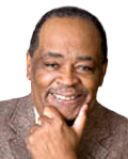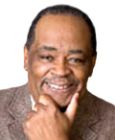
Obama seems at peace balancing “two warring ideals” in one truly bi-racial, truly bi-partisan body. So must the nation.
No matter what he does Barack Obama is a liberal and a conservative. He is both and therefore neither. This is doubletalk, but doubletalk is the only way to frame an intelligent statement about the world.
Two propositions that are exactly opposite can both be true. It’s what scientists tell us they’ve learned about reality. All humans are conscious of their “oneness” with and their “separateness” from the universe. Oneness and separateness are the terms physicists use to describe these paradoxical strivings. Communalism and individualism will better represent these strivings in socio-political discussions.
African Americans are usually not as discomforted by “twoness” or paradox.
In The Souls of Black Folk W.E.B. Du Bois, the great African American thinker, wrote: “One ever feels his twoness, -- an American, a Negro; two souls, two thoughts, two unreconciled strivings; two warring ideals in one dark body, whose dogged strength alone keeps it from being torn asunder.”
Since the beginning of the last century when The Souls of Black Folk was written, the dark body has learn to be at peace while holding in mind the two erstwhile irreconcilable strivings, the two warring ideals of the American spirit.
In the American body politic the strivings are held separately . . . a striving toward oneness or communalism by the political left, the Democrat Party, the striving toward separateness or individualism on the political right, the Republicans.
Strip away the concessions needed to get elected. Strip away the confusion of specific issues, the influence of money, race and region and there, standing ferociously at odds, are the two poles of our national debate.
Communalism creates a zeal for social justice and ecology to facilitate oneness with others and the earth; while individualism speaks more forcefully of the need for freedom or liberty and the natural striving for the separateness necessary to progress.
The history of the black American, says Du Bois, is the struggle “to merge his double self into a better and truer self.” Whenever we are victorious in this struggle we are quite comfortable continually asking the question that exposes the paradox: “How many heartfuls of sorrow shall balance a bushel of wheat,” as Du Bois put it?
Single minded concern for either the sorrow (the Democrats) or the wheat (the Republicans) will throw the universe out of balance. Neither concern can be isolated from the other; because as with paradoxes, to destroy one is to destry both.
A visitor from The Netherlands put a comment on The Last Black People in America, our blog post at Psychology Today: “I think it is better to start with the individual and to make the individual aware he can contribute to his or her society.”
This is true. It is the basic truth upon which modern democratic statehood is founded, and economic individualism is the engine that creates the vast material benefits without which contemporary life would be unthinkable.
But the opposite idea is also true: Start with the group, the tribe, the society, and now the world, and make sure there is a fair contribution made to each individual. This is the more ancient and more often ignored side of the paradox.
Admittedly, communalism is, I think, one of the reasons for Africa’s economic underdevelopment in its centuries-old encounter with the West; but, on the other hand, centuries of individualism focused now in America’s banking and oil industries are the biggest threats to human life on earth. Either communalism or individualism, when taken singly is a road to disaster.
As no other President needed to, Barack Obama has had to wrestle with twoness. His Western, Harvard education toward individualism warring with the communal “Dreams from My Father,” as Obama named his autobiography.
Hazel Rochman, a reviewer for Booklist, wrote: “Obama argues with himself on almost every page of this lively autobiographical conversation. He gets you to agree with him, and then he brings in a counter narrative that seems just as convincing.” I contend it is not an argument. It’s the outpourings of a mind comfortable with paradox.
In contrast much of the history of America seems to be a struggle for proponents of one side to vanquish the other, on the false assumption that only one side can be right.
Presently the political left is not as belligerent as during the 1960s. Then radicals on the Left (the Black Panther Party and the Weather Underground, for examples) were the ones carrying guns, doing violence, and threatening sedition to advance the striving towards social justice, communalism, oneness.
Now the threats come mostly from the extreme Right. Elements in the Tea Party and militia movement are arming to defend the striving for freedom, libertarianism, separateness. But despite any temporary victory for either side, the universe always restores the balance. And the amount of human suffering seems always proportional to the level of imbalance, and the intensity of the fight.
Throughout our history this war has raged in the nation’s soul, until we elected a President who is neither Left nor Right (see “Spiritually Liberal, Socially Conservative”). Obama seems at peace balancing “two unreconciled strivings; two warring ideals” in one truly bi-racial, truly bi-partisan body. So must the nation.



